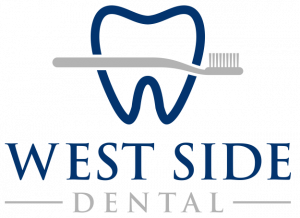Occlusal Adjustments
Occlusal, or bite, adjustment is a procedure performed to remove tiny interferences that keep teeth from coming together properly.

Table of Contents
What Are Occlusal Adjustments?
Occlusal, or bite, adjustment is a procedure performed to remove tiny interferences that keep teeth from coming together properly. These interferences can prevent the jaw from closing in its anatomically correct position. Interferences can occur as teeth develop, following an injury, or they can accumulate over time with wear. Dental treatment such as fillings, crowns, bridges, and extractions can also cause interferences.
Interferences can prevent the jaw from fully sliding into its anatomically correct position. This means that the muscles of the jaw and neck are never able to fully relax. This may result in severe headaches, neck aches, and tooth pain. Many patients may develop bruxism, or teeth grinding, as their jaw seeks its natural position. Bruxism can cause loss of tooth structure and receding gums. It may also necessitate the need for dental treatment if the teeth are affected severely enough. Over time, patients may develop temporomandibular joint (TMJ) issues if interferences go untreated.
How Can I Know if My Bite is “Off?”
During your examination, your doctor will examine your jaw closely and evaluate for signs that your bite may be off. Some signs include uneven closing of the jaw on both sides, popping or clicking noises upon opening or closing, wear facets in areas where the enamel has been ground away, or fractured teeth. Chronic symptoms of bruxism, such as headaches, neck aches, or jaw pain, are also clues that the bite may be off.
How is My Bite Fixed?
Before the procedure begins, the doctor will have you bite on a very thin piece of mylar paper. The mylar paper transfers color to the areas where contact occurs. The doctor will then smooth the area where the marks have been left by removing just enough of the tooth or restoration to eliminate the interference. This process will be done on all areas where the mylar paper left color on the tooth until the teeth meet together in a proper position.
Occlusal Adjustments FAQs
An occlusal adjustment, also known as bite adjustment, involves selectively reshaping the chewing surfaces of teeth to improve how they come together during biting and chewing. This procedure aims to alleviate uneven wear, tooth sensitivity, jaw pain, and muscle strain caused by improper bite alignment. Expect a thorough examination of your bite, possibly including X-rays and dental impressions, followed by precise adjustments to ensure a more harmonious bite relationship. The process is usually painless and can often be completed in a single dental visit, resulting in improved comfort and functionality of your teeth and jaw.
A dentist might recommend an occlusal adjustment to address bite alignment and dental occlusion issues. Common reasons include:
- Alleviating tooth sensitivity.
- Reducing uneven wear on teeth.
- Relieving jaw pain or muscle tension.
- Correcting bite discrepancies.
- Improving the fit of dental restorations like crowns or bridges.
- Mitigating the effects of temporomandibular joint (TMJ) disorders.
An occlusal adjustment can promote better oral health and enhance overall comfort by fine-tuning how your teeth come together during chewing and resting positions.
After an occlusal adjustment, maintenance primarily involves regular dental check-ups to ensure the bite remains stable and any adjustments hold up over time. Good oral hygiene, including regular brushing and flossing, is essential to prevent any issues affecting the adjusted bite. Additionally, wearing a custom mouthguard at night, especially if you grind your teeth, can help protect the adjusted surfaces and maintain the alignment achieved through the procedure.
Monitoring any changes in your bite or symptoms like jaw pain or tooth sensitivity and promptly addressing them with your dentist is crucial for long-term maintenance of the occlusal adjustment.
